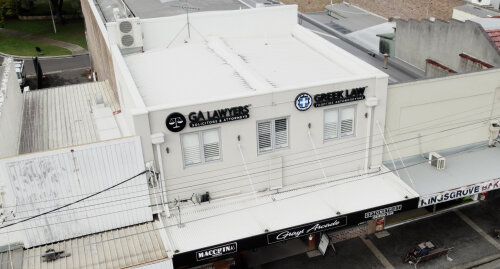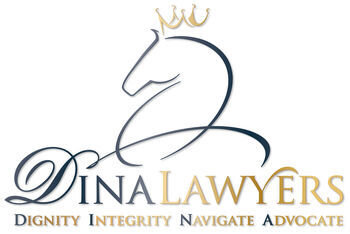Best Sexual Harassment Lawyers in Sydney
Share your needs with us, get contacted by law firms.
Free. Takes 2 min.
List of the best lawyers in Sydney, Australia
About Sexual Harassment Law in Sydney, Australia
Sydney, and Australia as a whole, has stringent laws regarding sexual harassment. This inappropriate behaviour is defined as any unwelcome conduct of a sexual nature, which can create a hostile or intimidating environment. Indeed, one doesn't have to be directly involved to be impacted by sexual harassment; witnessing sexual harassment can cause distress and constitute as harassment as well. It can take place in various contexts including places of employment, educational institutions, provision of services and even in public spaces. Each state, including New South Wales (home to Sydney), has local legislation in place to address and deter such actions.
Why You May Need a Lawyer
Individuals may require legal help in situations of sexual harassment for various reasons. If you are a victim of sexual harassment, you may need a lawyer to help you understand your rights, guide you through legal procedures, and represent you in formal complaints processes or litigation. For those accused of such behaviour, consulting a lawyer is all the more crucial to defend your rights correctly in court, and understand the allegations and regulations. Additionally, business owners can benefit from legal advice to ensure their workplace policies meet legal standards and deal efficiently with complaints of harassment.
Local Laws Overview
The Anti-Discrimination Act 1977 (NSW) holds relevant offences for sexual harassment in the context of employment and other specific areas in New South Wales. No-one should be subject to harassment on any grounds, and appropriate measures should be taken from employers to avoid such situations. If they fail to take these measures, they can potentially be held liable. At a federal level, the Sex Discrimination Act 1984 also prohibits sexual harassment. An individual who feels harassed can file a complaint to the Australian Human Rights Commission to seek redress.
Frequently Asked Questions
1. What can be classified as sexual harassment?
Unwanted or uncalled for sexual behaviours such as inappropriate touching, remarks or requests for sexual favours, displaying offensive materials are considered sexual harassment. It can also include conducts which creates a sexually hostile environment.
2. What should I do if I experience sexual harassment?
If you're comfortable doing so, express your discomfort to the person responsible. Document the incident along with any evidence that may support your experience. Consult a lawyer or support service to further guide you through your options.
3. How can I lodge a complaint?
You can lodge a complaint directly to the Australian Human Rights Commission. You may also have internal avenues for complaint depending on your workplace or institution policy.
4. Can an employer be held responsible for sexual harassment?
If an employer fails to implement reasonable safeguards against sexual harassment in the workplace, they may potentially be held responsible, especially if they were aware and took no appropriate action.
5. Do I need to involve a lawyer?
While it's not mandatory to involve a lawyer, it's often beneficial. A lawyer can assist in understanding your legal rights, provide crucial advice and represent you in court if necessary. Handling such sensitive matters by yourself can be stressful and potentially harm your case outcomes without correct legal guidance.
Additional Resources
In addition to legal help, supporting bodies such as the Australian Human Rights Commission, the NSW Anti-Discrimination Board, and support services like 1800 RESPECT (the national sexual assault, family and domestic violence counselling service) can provide valuable insights and help.
Next Steps
If you need assistance in cases of sexual harassment, the first step is to reach out to a legal professional or a support service. Collect and document all relevant information regarding the incident(s), as they will serve as crucial evidence in your case. Understanding your rights and taking appropriate action is imperative in addressing sexual harassment.
Lawzana helps you find the best lawyers and law firms in Sydney through a curated and pre-screened list of qualified legal professionals. Our platform offers rankings and detailed profiles of attorneys and law firms, allowing you to compare based on practice areas, including Sexual Harassment, experience, and client feedback.
Each profile includes a description of the firm's areas of practice, client reviews, team members and partners, year of establishment, spoken languages, office locations, contact information, social media presence, and any published articles or resources. Most firms on our platform speak English and are experienced in both local and international legal matters.
Get a quote from top-rated law firms in Sydney, Australia — quickly, securely, and without unnecessary hassle.
Disclaimer:
The information provided on this page is for general informational purposes only and does not constitute legal advice. While we strive to ensure the accuracy and relevance of the content, legal information may change over time, and interpretations of the law can vary. You should always consult with a qualified legal professional for advice specific to your situation.
We disclaim all liability for actions taken or not taken based on the content of this page. If you believe any information is incorrect or outdated, please contact us, and we will review and update it where appropriate.
















